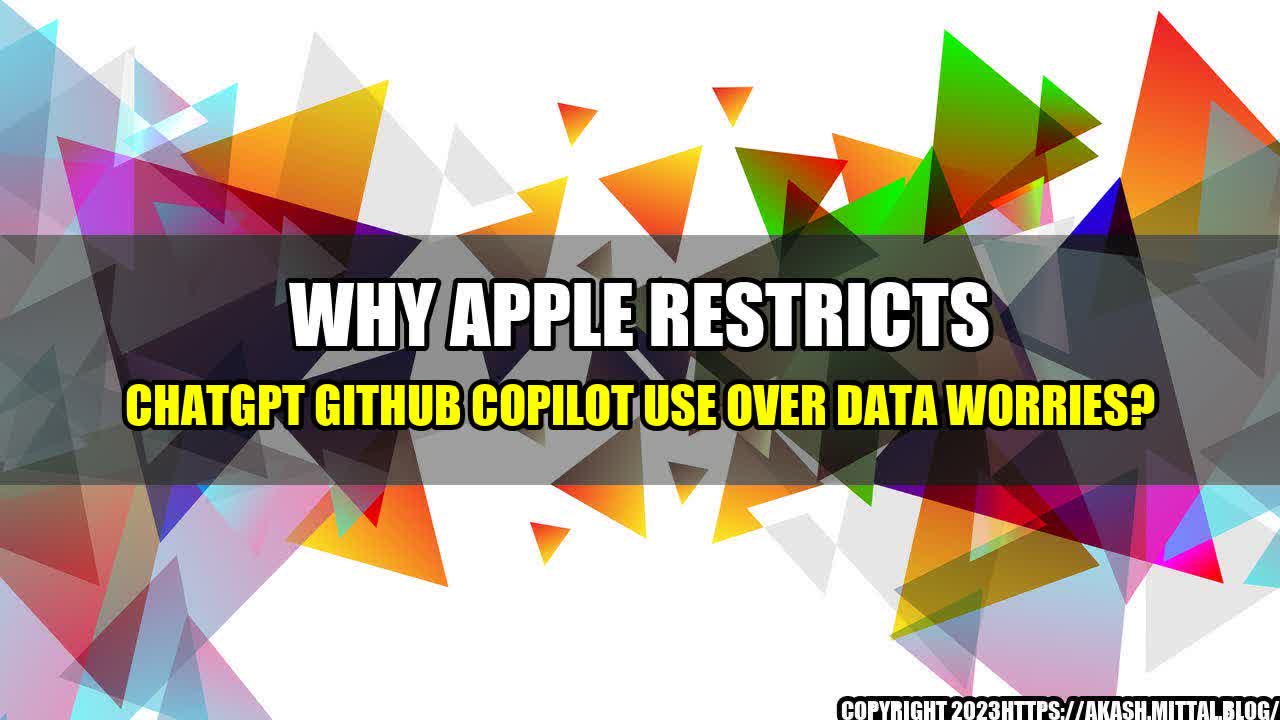Like most developers, Tom found coding a bit challenging. He normally spent long hours trying to figure out codes for his project. Despite his struggles, he was determined to find an easier way to do the job. One day, he stumbled on the news that GitHub, in partnership with OpenAI had launched a new tool called GitHub Copilot. The tool would make coding much easier for developers as it uses artificial intelligence to generate code. Tom was excited and decided to try it out.
Days went by, and Tom found himself coding much faster and more precisely. However, he soon discovered that his favorite brand, Apple had restricted the use of ChatGPT GitHub Copilot. Apple was worried about the data privacy and security concerns surrounding the use of the AI project by developers in their ecosystem.
In this article, we will explore why Apple restricted the use of ChatGPT GitHub Copilot, understanding the data concerns and what it means for the developers.
Data Privacy
Data privacy and security concerns are a major reason why Apple restricted the use of ChatGPT GitHub Copilot. The tool generates code by analyzing a lot of data obtained through scraping the internet. This raises the question of data privacy. What happens to personal data and information that is collected from users while using the tool? Who can access that? Even though developers state that the data is stored locally, the possibility of data breaches cannot be overruled.
The fact that GitHub and OpenAI have not come up with enough measures to guarantee data safety does not help matters either. This creates a challenge for Apple, who takes data privacy very seriously. By allowing Copilot, Apple exposes its users to possible data breaches, leading to a compromise of users' privacy.
Intellectual Property Rights
Another significant concern for Apple was the issue of intellectual property rights. The use of GitHub Copilot could potentially lead to the infringement of copyrighted codes or other forms of intellectual property. With the vast amount of data collected by the tool, it is hard to determine the originality of the code generated by the tool.
This places a burden on those using the tool to verify that the code they are generating is strictly original. In the case of Apple products, the company will not want to be associated with the use of an AI-generated code that infringes on third-party intellectual property rights, open source or proprietary. Thus, it makes sense for the company to restrict the use of the tool on its platform.
Competition
As a technology company, Apple has to face fierce competition from other tech giants such as Google and Microsoft. In the light of this, by restricting the use of ChatGPT GitHub Copilot, Apple could be trying to gain an edge over the competition. It is possible that Apple is working on a similar AI tool that it plans on releasing soon.
This could be a strategic move aimed at protecting its proprietary technology in an already saturated market. By restricting the use of Copilot, Apple could be trying to limit the exposure other tech giants have on its ecosystem. With the right AI technology, Apple could easily improve upon its current system and provide developers with an even better coding experience.
Conclusion
Apple's restriction of ChatGPT GitHub Copilot affects developers who rely on it to make coding a faster and easier experience. However, Apple's concerns over data privacy and security, Intellectual Property Rights, and competition are valid reasons why it would restrict the use of such a tool. It is crucial for developers and tech companies to uphold data privacy and security whenever creating and using new technologies.
For developers, it is recommended to always explore alternative coding tools and stay informed about the data privacy and security measures implemented by their tools of choice. Apple's restriction of ChatGPT GitHub Copilot may only be a temporary setback in the quest for making coding a seamless experience. Who knows what developers could come up with in the future?

Curated by Team Akash.Mittal.Blog
Share on Twitter Share on LinkedIn